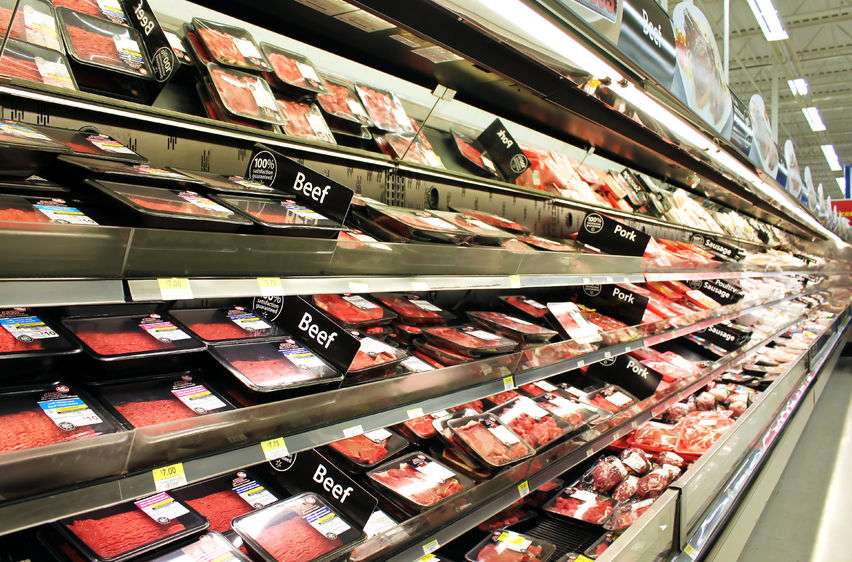
In response to the success of the discounters, major retailers are increasingly moving away from promotional activity in favour of an everyday low price (EDLP) strategy.
In the 52 weeks to 16 July 2017, the amount of red meat sold on promotion was just under 30%, according to AHDB Pork.
This was a drop of some eight percentage points on the corresponding period a year ago.
Price marked packs (PMPs) are defined by Kantar Worldpanel as non-promoted products with a label or sticker on the packaging clearly stating the price.
AHDB said that these have become ‘increasingly evident’ in the red meat sector.
Clear and concise
PMPs were introduced in the large supermarkets first on items such as steaks and mince, due to these products being easier to achieve a uniformed weight.
Between July 2016 and July 2017 the use of PMPs in supermarkets has increased by 27% on red meat, AHDB Pork said.
According to AHDB figures, when looking at red meat, the total percentage of volume sales which are PMPs is 12%. Pork and beef, however, both over index; 13% of both total pork and beef sales are in this format, compared with only 7% of total lamb sales.
PMPs are considered more attractive to younger, less affluent, consumers, who want a clear and concise price label to make a quick decision on whether to purchase a product.
According to Kantar Worldpanel, consumers under the age of 34 account for 14% of total red meat purchases, compared to over 55s who are responsible for 49%. They also show that younger consumers over index on PMP volume sales in red meat accounting for 17% of purchases; compared to the 43% for over 55s.
